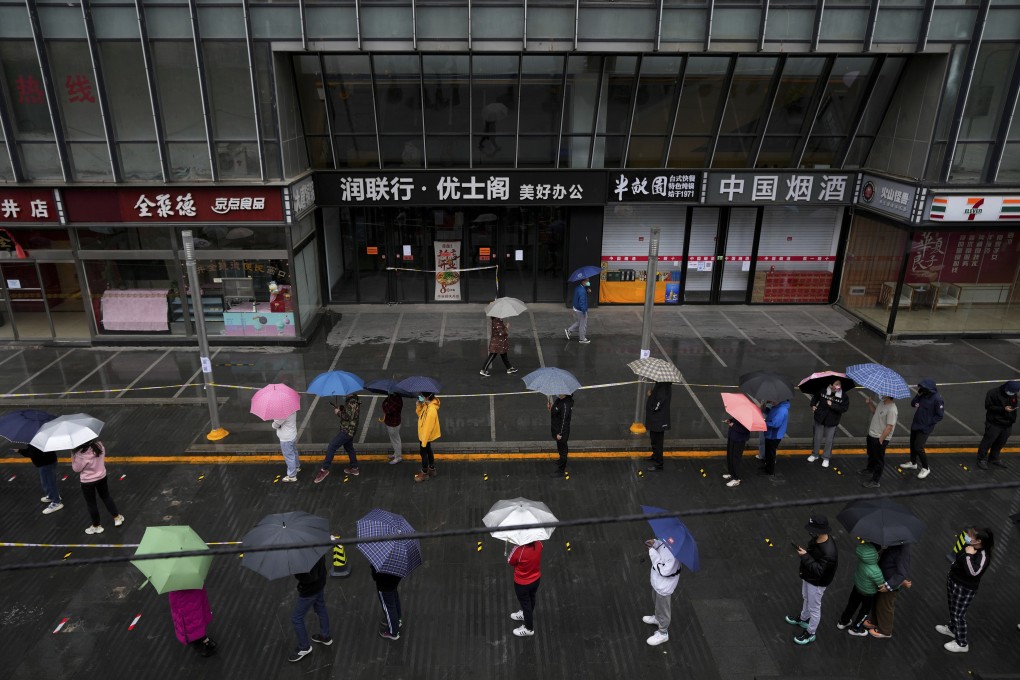China sticks to strict border rules as capital city Beijing steps up Covid-19 controls
- Immigration authority pledges to maintain ‘highest levels’ of prevention and control for inbound or outbound travellers
- In the capital, testing continues as the country battles its worst outbreak since the start of the pandemic

This came as the southern city of Guangzhou ordered mass testing for all residents in seven districts, after routine screening for airport staff returned positive results from three employees and a family member on Wednesday night.
Most flights were cancelled as the Baiyun airport was placed under “effective control”. And while some flights within China resumed after 2pm on Thursday, a later announcement grounded all domestic flights for the next two days.
Meanwhile, National Immigration Administration spokesman Chen Jie said its “strict and tight” border policy would continue. The NIA would resolutely play its official role in the “dynamic zero” strategy against Covid-19, with strict border controls aiming to prevent virus imports, Chen said, according to a statement following a closed-door media briefing late on Wednesday.
“Immigration management agencies at all borders will continue to maintain the highest level of prevention and control,” he said.